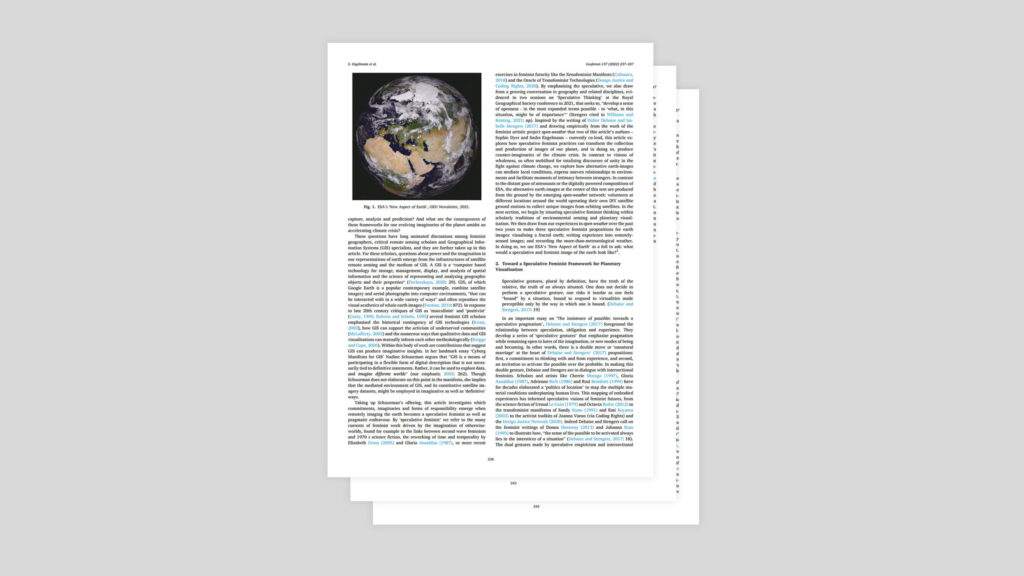
Open-weather: Speculative-feminist propositions for planetary images in an era of climate crisis
This article explores how speculative feminist practices can contribute to the collection and production of images of a planet in climate crisis. Inspired by feminist geographers and the speculative pragmatism of Didier Debaise and Isabelle Stengers, we suggest how speculative and feminist thinking unsettles the mediated optics of contemporary satellite earth observation. In a speculative feminist framework, earth images may transcend their dominant roles as scientific tools and cultural allegories and become tactical devices for imagining and acting otherwise. To illustrate this, we draw empirically from the work of the feminist artistic project open-weather to make three propositions: first, envisioning a fractal earth; second, writing experience into remotely-sensed images; and third, recording the more-than-meteorological weather. Images and imaginaries of earth are not only co-constitutive of the material conditions and worlds that produce them; in a speculative feminist framework, these images and imaginaries are also accountable to these worlds.
Credits
This article emerged out of a collaboration between open-weather (Sophie Dyer and Sasha Engelmann) and Rectangle Studio (Lizzie Malcolm and Daniel Powers) that resulted in the open-weather nowcast for COP26 (When I image the earth, I imagine another).
The authors thank the twenty-nine volunteers from the open-weather network who submitted satellite images and field notes from which the artwork was built.
They would also like to thank The Photographers’ Gallery (London, UK) and CCIC Tabakalera (Donostia / San Sebasti´an, Spain) for commissioning the work. Sasha and Sophie extend warm thanks to Elizabeth Brooks, Simin Davoudi and Ruth Machen for the invitation to contribute to this special issue in Geoforum on Climate Imaginaries, and for helpful comments on earlier drafts of this article. They also thank Robert Fletcher and three anonymous reviewers for guidance and provocation that further improved the article.
Finally, Sasha extends deep gratitude to her colleagues at Royal Holloway – Thomas Dekeyser and Oli Mould – for their suggestions, comments and encouragement.